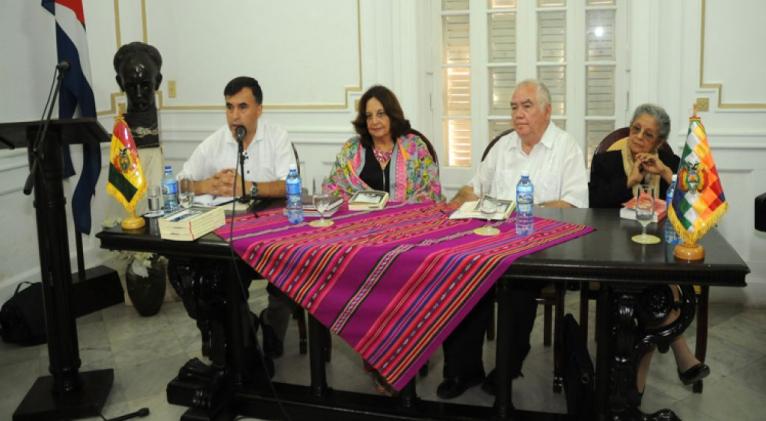New Documents of Che's Diary in Bolivia Delivered to Cuba
especiales

Juan Ramon Quintana, Bolivia's ambassador to Cuba, said the delivery of the newfound documents helps us to understand the past and present.
A more complete version of Ernesto "Che" Guevara's diary in Bolivia was delivered to Cuba by the Bicentennial Library Project of the Martí Studies Center in La Paz, Bolivia.
RELATED: Bolivia Commemorates Tania the Guerrilla, Revolutionary Who Fought Alongside Che in Bolivia
The book includes improved newspaper photocopies, five public statements written by Che — one of which was published on May 1, 1967 in Prensa Libre newspaper in Cochabamba — maps, covers of several notebooks, a biographical synthesis of guerrilla members and other important documents.
Juan Ramon Quintana, Bolivia's ambassador to Cuba, said the delivery of the newfound documents represents a vital step in understanding the past and present of the the Andean country, according to Prensa Latina. He added that the transfer held special meaning for both the people of Bolivia and Cuba.
“A solidary and internationalist Che lives in all of us. This is closely linked to our economic liberation process, to our achievements in health, education, social programs that benefit the population,” Quintana said. He went on to affirm that Che's legacy lives on in the past 12 years of Bolivia's government, headed by President Evo Morales, where the people overcame the alienation of its majority Indigenous population, foreign domination, manifest destiny penned in Washington and other groundbreaking experiences.
After his speech, Quintana also delivered some additional notebooks kept by Che, as well as several newspaper facsimiles published at the time.
Cuba historian Froilan Gonzalez thanked the gesture “at a time when the 165th anniversary of the birth of (Cuba's) national hero, Jose Marti, is being celebrated.” He also recalled that the original publication of Che's diary, in 1968, represented a serious blow to the Central Intelligence Agency, CIA, which tried to introduce lies into the text, as if Che had written them himself, by employing a team of graphologists.
Frolian added that the newspaper clips show “the true support of the Bolivian people to the guerrilla effort.”
Over fifty years ago, Che launched a guerrilla movement in the South American country aimed at overthrowing the right-wing military regime of Rene Barrientos and establishing a socialist state. In doing so, he helped create the Ñancahuazú Guerrilla, also known as the National Liberation Army.
After months of fighting against the U.S.-trained and supported Bolivian Army, Che was captured and executed on Oct. 9, 1967 at age 39 after refusing to divulge information while being interrogated. It is widely believed that Barrientos' regime was instructed by the CIA to hunt down and kill Guevara.













Add new comment